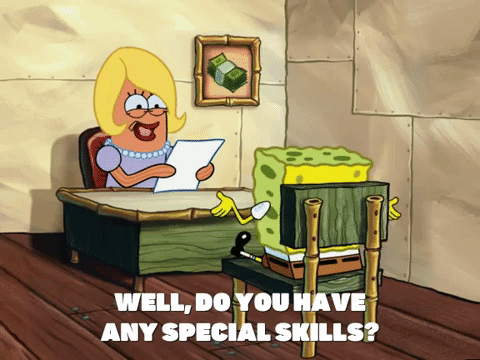The eternal debate returns. Do employers prefer candidates with hard skills? Or do they want more candidates with soft skills?
While your parents may have grown up in a world that was focused on degrees, qualifications, and certifications (i.e. hard skills), millennials are entering a modern workforce with different expectations. A new workforce with an increased emphasis on soft skills – such as communication, teamwork and creativity, work ethic and problem-solving.
Are you here to prepare for a job interview?
A pro-tip to remember the – your technical skills may be a basic requirement for the job (and what employers look for when shortlisting candidates for interviews), but it will (most likely) be your soft skills that will help you land that dream job!
Did you know that 77% of employers say that soft skills are just as important as hard skills?
In fact, only 16% of employers place a greater emphasis on hard skills than soft skills when evaluating suitable candidates.
The Difference Between Soft Skills and Hard Skills
Advice: Soft skills are a reflection of your employment history

So why do employers value soft skills a lot? Well, unlike hard skills (technical abilities), soft skills cannot be studied in school – but instead, need to be cultivated over a period of time, through real-life experiences. This is what makes every person’s mix of soft skills unique because their soft skills are a reflection of their life’s story.
When it comes to choosing leaders, Forbes says that when IQ and technical skills are similar, a person’s EQ accounts for 90% of the reason why they are moved up the organisational ladder.
Advice: Hard skills are a reflection of your educational history

On the other hand, hard skills reflect your educational background, your training, and certification. Job seekers tend to emphasise and rely on their hard skills during the job search, because, it is hard to prove or supplement the claim that you have a specific soft skill. Some popular examples of hard skills include accountancy, law, analytics, automotive, banking and more!
The world’s desired soft skills

Now that you understand the value of selling your soft skills during an interview, it’s important to know what soft skills your prospective employer value over others.
To help you get started, here’s a list of the most desired soft skills that employers commonly look out for:
A. Work ethic: 73% of employers state that they will pick a candidate they believe has a strong work ethic.
B. Dependability: Similarly, 73% of employers look out for candidates they think they can depend on.
C. Positivity: Who knew that an infectiously positive personality is considered a soft skill? Well, more than 70% of employers will hire people who come across as positive.
D. Motivation: A self-motivated employee, is one that will perform well. Not to mention, help motivate their colleagues around them! It’s no wonder more than 60% of employees lookout for candidates who appear to be motivated.
E. Teamwork: They say that teamwork makes the dream work! Evidently, this is a saying that employers also believe in! So if you work well in a team, this should count as great news!
F. Multi-tasking: Remember the days when you could Skype with your best friends online, whilst watching a drama series on YouTube and editing your University essay, all at the same time? Well, if multi-tasking is your jam, you’ll be happy to know that employers value your soft skills! Just try not to Skype with your pals or watch Netflix during work hours!
G. Calmness: A calm, cool, collected person is a valuable asset to the company. Imagine being able to solve issues and be the voice of reason as your employers work to get through whatever anxiety or issue they’re facing. It’s no wonder that more than 50% of employers employ candidates who can remain calm.
H. Communication: A no brainer. If you can’t communicate to your teammates, you won’t be able to churn out great work.
We recommend researching the company you’ll be interviewing with to identify your unique match of technical skills, soft skills and work experience that will appeal to recruiters at the organisation. (How do I conduct research? We’ve outlined it in our
Finding the right balance

During your interview, it’s important to remember that interviewers have already seen your resume (and will probably have it in front of them during your interview). This means that they’re very familiar with your qualifications, the schools you graduated from, and your previous work experience. What they’ll want to know during the interview is whether or not you’re the right fit for them, and this comes down to your soft skills. Interviewers are analysing whether you’ll be able to easily integrate into existing teams, adapt to company culture and excel – while producing great work for the organisation.
This is where you can truly shine, by selling your unique mix of soft skills (to support your technical skills, knowledge and experiences). We recommend supplementing each hard skill you have, with an equally valuable soft skill to balance out your capabilities.




